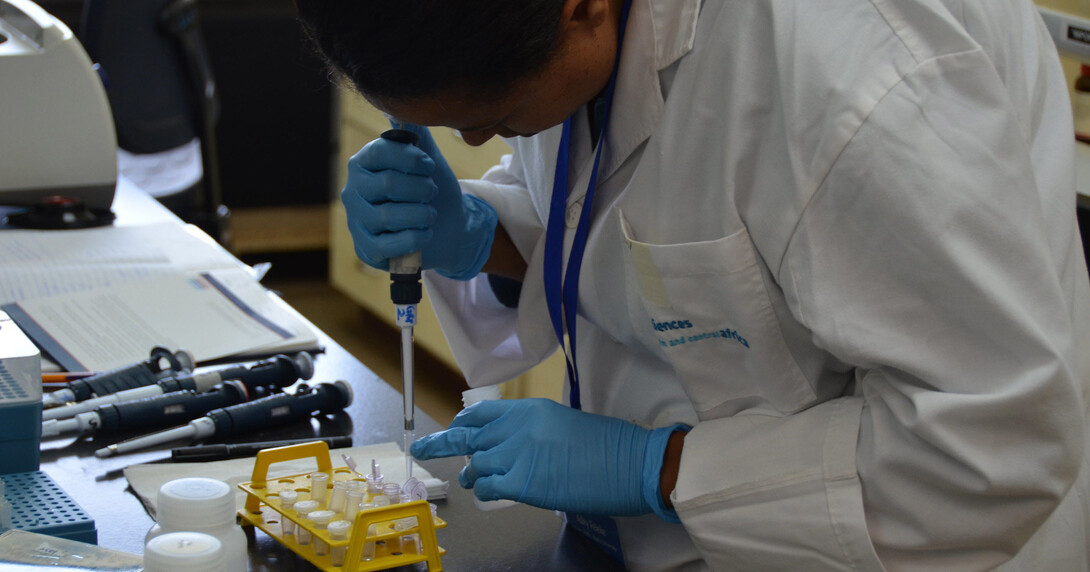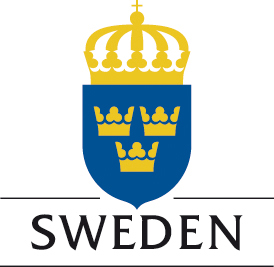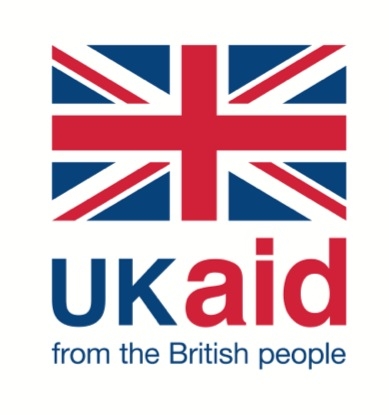
History of BecA-ILRI Hub
Strategic Partnerships

Regional Nodes: Collaborations extend to various institutions, enhancing capacity and resource sharing across multiple countries including Cameroon, Ethiopia, Uganda, Rwanda, and Kenya. These partnerships facilitate localized research initiatives and capacity building, crucial for addressing specific agricultural challenges in these regions.
BecA-ILRI Hub Impact and Contributions
- The Hub's mission to use bioscience for Africa's development plays a key role in advancing sustainable farming, enhancing food security, and improving nutrition across the continent.
- By focusing on delivering practical solutions and building significant regional capacity, the Hub played an important role in driving forward the agenda of agricultural innovation and security in Africa.
This historical and strategic framework positions the BecA-ILRI Hub as a cornerstone in Africa’s agricultural research landscape, promoting sustainable development and regional self-sufficiency in food production. Building on this legacy, the new BecA- Hub envisions seeing a role for translational research and product development by working with public-private sector groups.

Testimonials

Segenet Kelemu
Former Director, BecA-ILRI Hub
We aim to help build Africa’s capacity by empowering its scientists to lead the coming African agricultural revolution from within. Many of the research findings generated so far… will find quick application in agriculture’

Gabrielle Persley
Crawford Fund, Australia
The BecA-ILRI Hub is an adventure in “mobilizing biosciences for Africa’s development”, by means of establishing and operating
a shared biosciences research “center for excellence” in Africa

Aggrey Ambali
Director, Policy Alignment and Programme Development Directorate, Planning and
The BecA Hub offers Africa’s bioscientists the opportunity to conduct high-level research within the continent.

David Collins
Canadian High Commissioner to Kenya
Canada is pleased to celebrate the achievements that have been made in establishing this particular centre of excellence in
bioscience in agriculture
Some of the Key Partnerships for Sustainability include:

Through its partnership with the Bill & Melinda Gates Foundation, the BecA-ILRI Hub receives core support for operational costs as well as salaries for key staff in genomics, bioinformatics and crop breeding. The partnership also provides funding for capacity building activities at the Hub including workshop costs, funding for visiting scientists through the Africa Biosciences Challenge Fund as well as visits by Hub staff to research institutions in the region.

The partnership with the Syngenta Foundation for Sustainable Agriculture subsidizes the costs for research related services at the BecA-ILRI Hub, making it more accessible to African scientists and institutions. Through this partnership, the Hub also receives core support for operational activities and salaries for key staff supporting capacity building activities.

With funding from the Swedish Ministry for Foreign Affairs and the Swedish International Development Cooperation Agency (Sida), the BecA-ILRI Hub, together with partners from National Agricultural Research Institutions (NARIs), African universities and regulatory bodies, private sector, international research institutes, foreign universities, CGIAR and other participants designed a number of unique research projects focused on two major issues with which agricultural developments in Africa are concerned – achieving food security and climate change mitigation.
The partnership with Sweden goes beyond building up specialized skills to empowering African scientists, NARIs and universities to solve Africa’s agricultural challenges by strengthening research for development capacity in biosciences.
Food security
The Swedish Ministry for Foreign Affairs is funding a multi-year food security program which supports research projects on crop and livestock improvement with a special emphasis on under-researched crops and livestock. Through this program the BecA-ILRI Hub receives core funding to bolster the management of the Hub facilities; develop new technology platforms and support capacity building activities including the training workshops and fellowships for African scientists through the Africa Bioscience Challenge Fund (ABCF) Programme.
The bioinformatics platform has also benefited greatly from this partnership which gives scientists access to technical advice and enhanced expertise from SLU, including infrastructure upgrade.
The research component brings together scientists from 16 institutions across five African countries, the United States of America and Europe on projects to improve the productivity of a range of underutilized crops and of livestock through improved health and breeding practices. Activities under this program include:
Plant Tissue Culture And Transformation Projects
Healthy Crops And Livestock: Diagnostics Tools To Detect And Facilitate Control Of Diseases Of Selected Crops And Animals
Harnessing Genetic Diversity For Improved Goat Productivity
Capacity building - The partnership with Sweden provides support for the Hub’s Group Training Workshops.
Support to the bioinformatics platform.
Climate change adaptation and mitigation
The BecA-ILRI Hub’s “Climate change adaptation and mitigation Program” aims to provide smallholder farmers in arid and semi-arid areas of sub-Saharan Africa with climate-smart crops and farming systems to increase agricultural productivity in the face of harsh climate conditions. Activities under thi

The partnership between the BecA-ILRI Hub and Australia’s national science agency, the Commonwealth Scientific And Industrial Research Organisation (CSIRO), is funded by the Australian Government Department of Foreign Affairs and Trade (DFAT).
The research and capacity building priorities under this partnership are aligned with regional priorities defined in part by the Africa Union’s New Partnership For Africa’s Development (NEPAD), The Comprehensive Africa Agriculture Development Programme (CAADP) and the Association For Strengthening Agricultural Research In Eastern And Central Africa (ASARECA) and are focused on:
- improving food and nutritional security in the subregion
- improving animal health, particularly the management of priority diseases in livestock of the region
- linking African and Australian scientists who develop and use biosciences in agriculture to alleviate poverty and promote sustainable development in the region
- providing African scientists with funding and technical support to advance their research for the subregion.
This partnership is divided into two major focus areas:
Food and nutrition research which includes projects on: Increasing The Use Of Amaranth For Improved Nutrition; Domestic Cavies As An Alternative Source Of Animal Protein And Household Income; Domesticating Wild Edible Mushroom For Diversified Nutrition; and Addressing Aflatoxin Contamination In Maize In East Africa.
Animal health research which includes: Reducing The Risks And Impact Of African Swine Fever; Developing An Inactivated Vaccine For Contagious Bovine Pleuropneumonia (CBPP); and Developing A Pan African Strategy For The Control Of Peste Des Petits Ruminants (PPR).

The UK Government through the Department for International Development (DFID) co-funds a four year Program Support Grant with BMGF. The focus of this grant is on providing African National Agricultural Research Systems (NARS) scientists with the means of driving discovery; leading strategy and implementing research for development projects in agriculture in eastern and central Africa for sustainable productivity increases for smallholder farmers.
Main components supported by the grant include:
- Strengthening the BecA-ILRI Hub’s internal capacity to support NARS innovations;
- Supporting the BecA-ILRI Hub in continuously sharpening the alignment of capacity building and research portfolio with NARS priorities;
- Supporting and strengthening capacity of NARS to drive innovation for impact; through Research Fellowships That Enable The BecA-IRI Hub To Host NARS-Led Research Projects Addressing National Priorities, short skill-enhancement courses and actions that unlock the potential NARS research environment;
- Supporting strategic partnerships for strengthening support to NARS innovations e.g. the BecA-JIC Alliance for accelerated crop improvement;
- Catalyzing the formation of NARS-led communities of practice for multi-country, multi-disciplinary research;
- Supporting the mainstreaming of high-end biosciences in Africa’s agricultural research for development and policy discourse
The US Defense Threat Reduction Agency through the Cooperative Biological Engagement program, has awarded a grant to the BecA-ILRI Hub together with national and international partners including the Nelson Mandela African Institute of Science and Technology, Sokoine University, National Health Laboratory of the Ministry of Health and Social Welfare, Tanzania Wildlife Research Institute, Tanzania National Parks Authority (Tanzania); Frankfurt Zoological Society (Germany); and Penn State University(USA) for the investigation of the role of wild animal meat (bushmeat) as vehicles for transmitting important zoonotic pathogens to humans.
Funding from the National Science Foundation Partnerships for International Research and Education (NSF-PIRES) is providing support for research to tackle plant viral diseases in Africa. Thepartnership under this grant brings together scientists from Auburn University, North Carolina Agricultural and Technical State University, North Carolina State University and Rutgers University in US; the BecA-ILRI Hub, Kenya; and the Mikocheni Agricultural Research Institute (MARI) and Nelson Mandela African Institution of Science and Technology, Tanzania. The research will focus on the evolution of the Cassava mosaic virus which has adapted to different environmental conditions and break plant resistance over time, confounding efforts to combat the economically significant Cassava mosaic disease.
The Canadian International Development Research Centre (IDRC) is co-funding an international symposium on Cavy production and market systems. The event brings together key stakeholders in the cavy culture industry and some stakeholders dealing with alternative livestock species from Benin, Cameroon, Côte d’Ivoire, DRC, Kenya and Tanzania; local NGOs and farmer organizations; representatives of international research and funding institutions; academics from Africa and Europe; and organizations from South American countries where cavy rearing is well established including PROCASUR, Colombia and La Molina National University, Peru.
The symposium provides a forum for information exchange among cavy stakeholders within Africa and between Africa and Latin America, and will explore the untapped potential of cavies as mini livestock to help poor and vulnerable households in Africa climb up the livestock ladder out of poverty.
UK’s Biotechnology and Biological Sciences Research Council (BBSRC) is co-funding two Sustainable Crop Production Research for International Development (SCPRID) initiative crop improvement projects with the UK Department for International Development (DFID) and (through a grant awarded to BBSRC) the Bill & Melinda Gates Foundation (BMGF).
The SCPRID project focused on beans is exploring new ways of controlling bean virus diseases by altering the feeding patterns and behaviour of aphids through this initiative. Implementation is in partnership with scientists from University of Cambridge and Rothamsted Research (UK); and the International Center for Tropical Agriculture (CIAT)-Pan African Bean Research Alliance (PABRA).
The SCPRID rice project using genomics to develop durable blast resistance in rice in Africa. It is being implemented in partnership with researchers from University of Exeter, the Ohio State University, the University of Arkansas, Kenya Agriculture and Livestock Research Organization (KALRO), and the Institut de l’Environnement et de Recherches Agricoles (INERA), Burkina Faso.
The Australian Centre for International Agricultural Research provided support for the participation of researchers/breeders from the national agricultural research systems in Uganda, Tanzania, Rwanda, Burundi to attend the Advanced Genomics and Bioinformatics Workshop in 2016. The annual workshop provides a learning forum for researchers in genomics (laboratory procedures in Next Generation Sequencing NGS) and bioinformatics (computational methods of analyzing NGS data)














